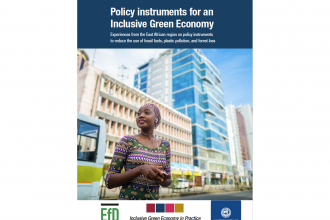
Government fisheries officials benefit from joint training by EfD-Mak and EfD Ghana
Seventeen fisheries officers from Uganda’s districts of Kampala, Mukono, Masaka, Wakiso, and Jinja have benefitted from training on the bio-economics of fisheries management, organized by EfD-Mak and…
The impact of monetary policy on a labor market with heterogeneous workers: The case of Chile
We use a factor-augmented vector autoregressive (FAVAR) model to analyze the effect of a contractionary monetary policy shock on macroeconomic aggregates and labor market indicators for different demographic groups in Chile classified by industry, age, and income quintile. Inflation is negatively correlated with unemployment across groups. The model shows that most groups’ job-separation rate and wage volatility increase after an interest rate rise. The response of the job-finding rate is mixed, decreasing in some groups and rising in others after an interest rate shock.
Hire purchase schemes and adoption of LPG cookstoves: Experimental evidence from Uganda
Highlights:
▪ Hire purchase schemes increase vendors' likelihood of buying an LPG cookstove.
▪ Hire purchase schemes with a learning opportunity have a greater effect on the vendor’s likelihood of buying an LPG cookstove.
Blow the lid off: Public complaints, bargaining power, and government responsiveness on social media

Experiences from East Africa – which green policies work and which don’t?
A report is now available, which reflects on experiences from East Africa in addressing key environmental and social challenges: fossil fuels, plastic pollution, and deforestation. The report has been…

SETI women talk about the energy-gender nexus
Three researchers from the collaborative program Sustainable Energy Transitions Initiative sent important messages regarding women’s contribution to science in and different aspects of energy and…

EfD researcher recognized for her academic career
The University Of Concepción (UdeC), the host institution of EfD Chile, had a grand exposition opening called “Women Creating Knowledge” to commemorate Women’s International Day. Marcela Jaime…